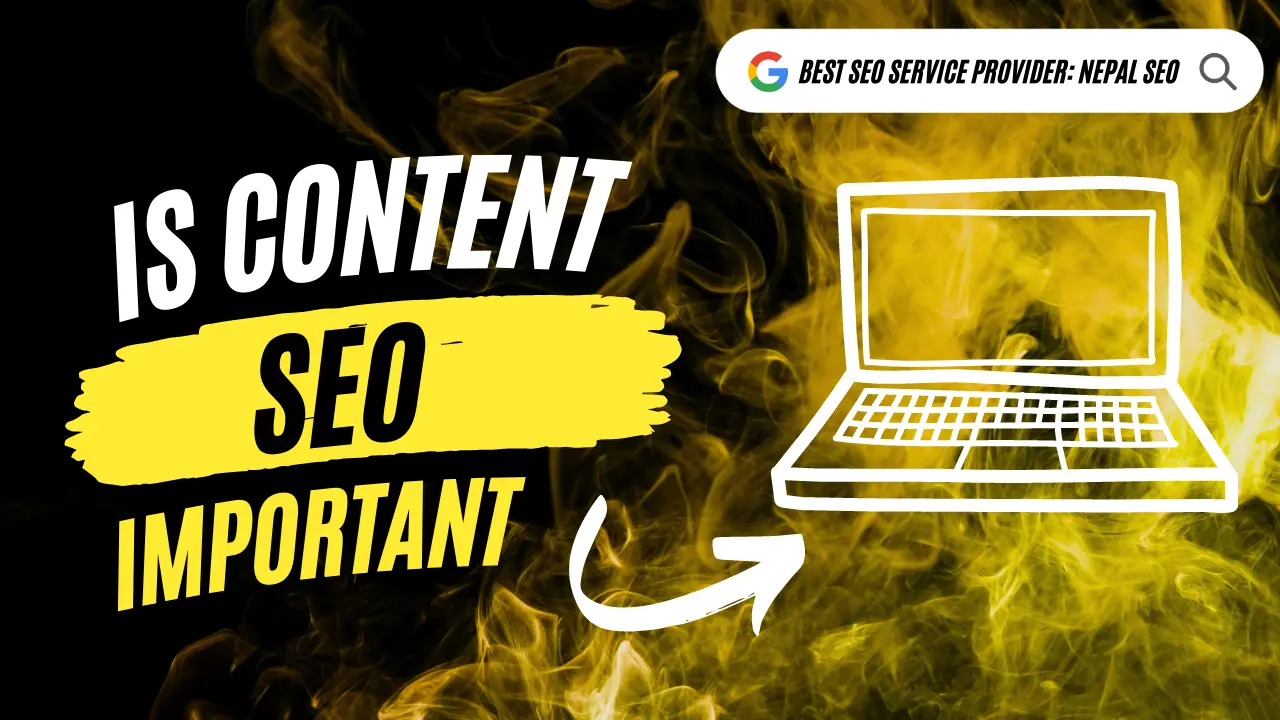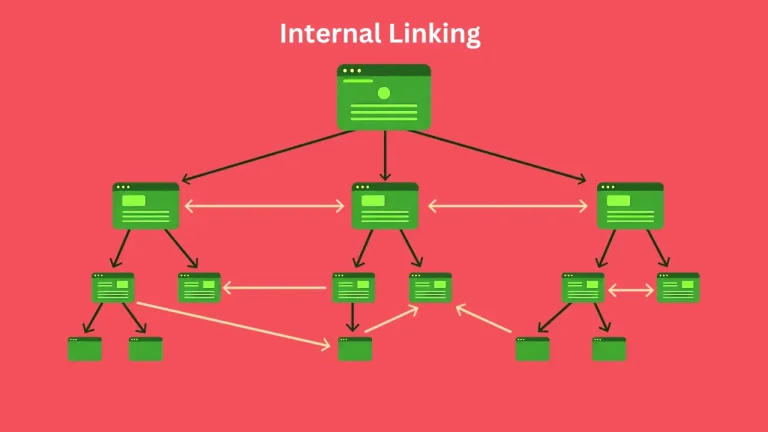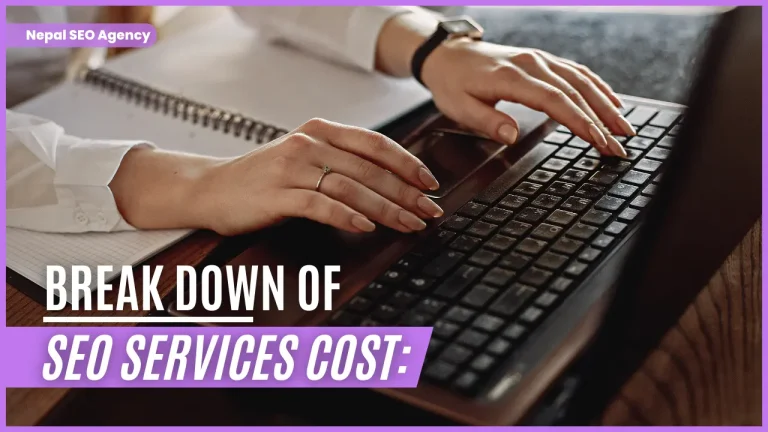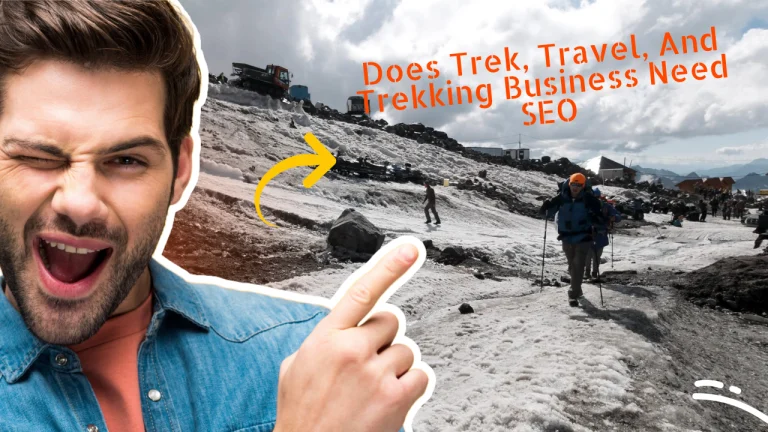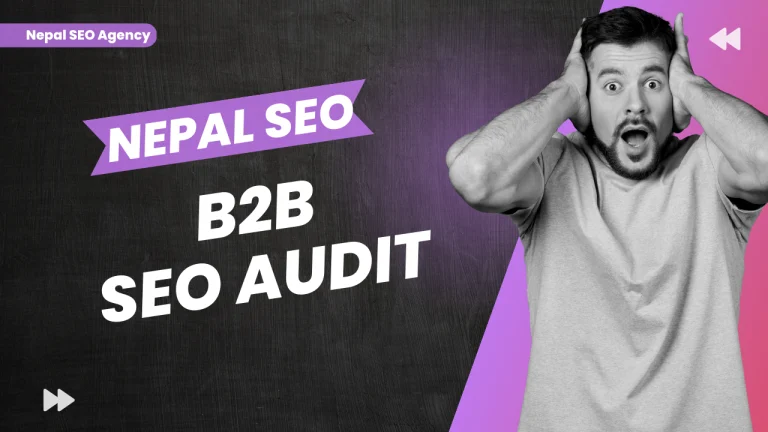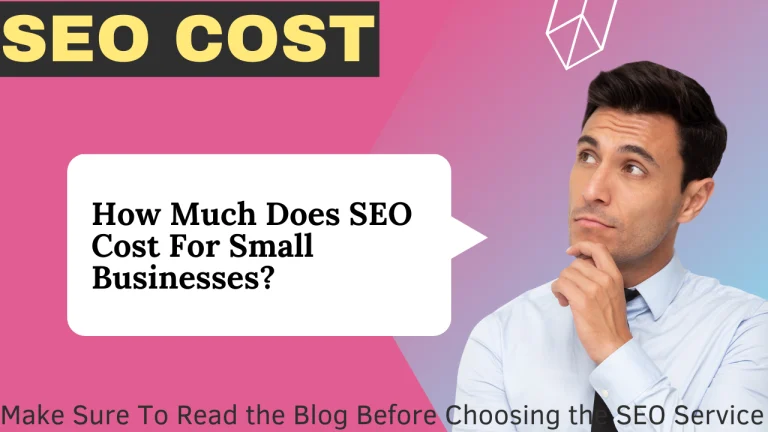Is Content Important For SEO? Importance of Content SEO
Every business requires content, and in the digital world, the importance of Content in SEO and other marketing platforms has an emerging trend. We are focusing on the Content SEO in this article, and trust me, there are many use cases of content for growing the website. Without content, everything is secondary, even SEO. One ranking factor is EAT (Expertise, Authority, trustworthy ), which comes through content only.
The Role of Content in SEO
Content has a huge role in SEO, from Blog writing, article, copywriting, guest post, videos, infographics, visual Content, dwell time, and more. It’s worth saying Content is the Backbone of SEO.
Creating good content that fulfills the user intent of the search and is tailored to the needs and interests of the target audience can help improve the ranking on search engines. Even video form content is highly appreciated by a search engines. In fact, without content SEO, search engines do not find the website trustworthy enough to rank on desirable keywords in 2023 as its not only backlinks. It is also about good, quality content to satisfy the user intent of the query.
How Content Affects Search Engine Rankings
Content directly affects the search engine ranking in many ways: dwell time, user satisfaction, quality of content, keyword optimization, Relevancy & Authority, etc. Now we will talk in detail of these topics:
1. Dwell Time
The dwell time is the amount of time that a user spends on our website; it is also indirectly proportional to the bounce rate; as dwell time is higher bounce rate is lower, and without proper content SEO, these things will surely hit the ranking of the site in search engine result page (SERP). User Engagement over a web page also affects the ranking of the particular page as the engagement will help know the user’s positive/negative behavior.
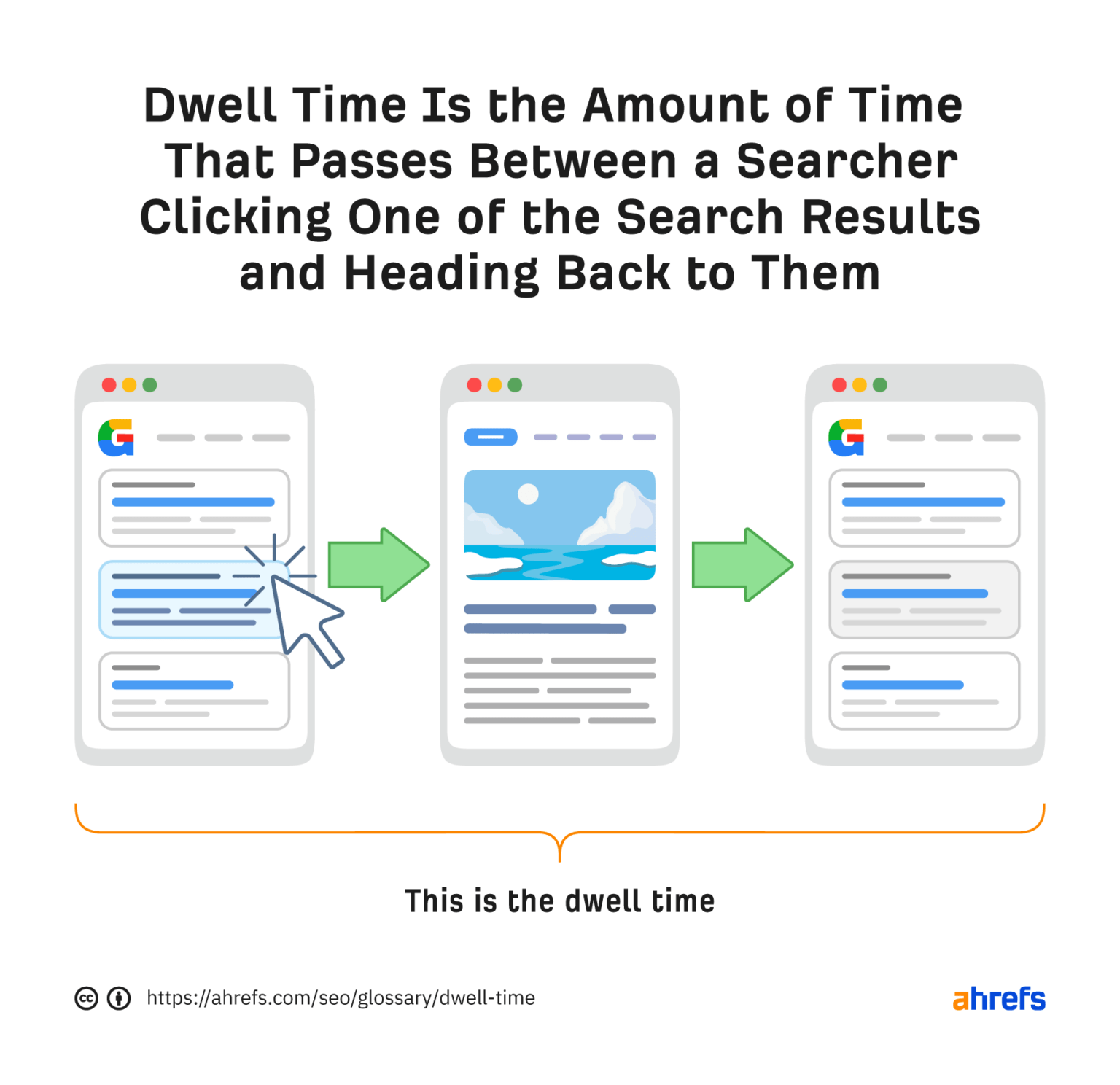
2. User satisfaction
User Satisfaction is about writing content after knowing the “keyword intent.” Suppose “International SEO” and “International SEO Services” have two different intentions, informational and commercial. We cannot mix them if content optimization is done without these things also affects the ranking.
3. Quality of Content
The content needs to be high quality and engaging. Including the embedded videos, images, and infographics will help create good content that’s ranking. These things make it easier to rank on any specific niche.
4. keyword optimization
Keyword Research and optimization are crucial components while creating any content. With the proper planning of keyword headings, the intent of a keyword, and keyword difficulty, it’s easier and affects the site’s ranking in the long term.
5. Relevancy and Authority
Website relevance on the particular niche and authority of the website will matter while ranking, and all these things are managed by content. Content helps build the relevancy and authority of specific niches and helps rank new pieces of content based on these things too.
SEO Strategy for Content Creation in 2023
1. Identify target audience
Identifying the targeted audience is the first step of SEO Strategy; all this starts with knowing the targeted audience’s region, geography, local language, the common keyword they search for, and age, demography, and gender; all of these things help on keyword searching, content SEO planning, local link building strategy, etc
2. Research keywords
After identifying the targeted audience, finding the keywords based upon the intent, volume, keyword clusters volume, secondary keyword intent, keyword difficulty, relevance on the audience, etc., are the things to brainstorm while doing so. And at last, prepare structured content headings to write effectively. While doing so, make sure to find these things:
- Long-tail Keywords
- LSI Keywords
- Keyword Cluster
- Keyword Intent
- Relevance Keyword
3. Create content plan
The content planning for the next three months should be done to make content relevant, focused, and optimized for the search engine. Even more, creating sub-content of main content can be a great SEO Strategy to follow in 2023. A well-planned content plan strategy can attract more organic website traffic and drive business growth through increased conversions and revenue.
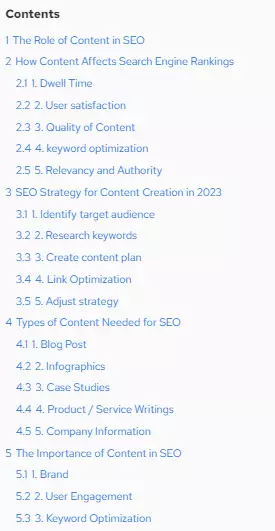
A content plan outlines the types of content that should be created, the topics to cover, and the publishing schedule for content.
4. Link Optimization
Link optimization is also a necessary for producing high-quality and engaging content by filling the user intent after clicking the link’s anchor text. Content Creation should focus on internal and external linking through the content, as optimizing these links is also one of the ranking factors on search engines.
Things to consider and look into while optimizing the link
- Internal / External links
- Do Follow / No Follow links
- Anchor text
- Sponsored / Affiliate Type links
- Link quality
5. Adjust strategy
Adjusting SEO strategy for content creation is important in optimizing a website’s search engine rankings and driving more organic traffic to your site. As we create and publish content, it’s important to monitor the website’s performance and adjust strategy to ensure that the range meets your target audience’s needs and ranks well in search engine results pages (SERPs). The adjustment strategy things include this thing
- Monitor performance metrics
- Identify areas for improvement
- Experiment with new tactics
- Stay up to date with industry trends
- Continuously optimize old content
Types of Content Needed for SEO
Many types of content are needed for search engine optimization, like Blog Posts, Infographics, Videos, Case Studies, White Papers and Ebooks, Product Reviews, How-To Guides, Lists, etc., depending upon the niche and structure of the website. We’ll discuss five types of content related to most business Content for SEO.
1. Blog Post
Blog posts are the primary source of traffic for most business websites. The blog posts are created to provide information to the audience, and the targeted keywords on blog posts are generally informational internet keywords.
Additionally, blog posts can provide value to readers by answering their questions, providing insights or tips, or sharing industry news or trends. Doing so also makes brand-building and makes it trustworthy for the audiences.
The content should be relevant, informative, and engaging, including keywords and phrases the audience will likely search for. It’s also important to structure the content in a way that’s easy to read and understand, with headings, subheadings, and bullet points as needed.
2. Infographics
People and search engines love infographics content such as charts, tables, pie charts, etc., which gives a better experience and helps get user engagement on the content. Making infographics helps stand out from the crowd of the same content, and these types of chats, tables, and pie charts may also help in user satisfaction.
3. Case Studies
Case Studies are also applied to most services-based businesses; it helps attract new audiences and makes a section on the website that allows Google to understand their services.
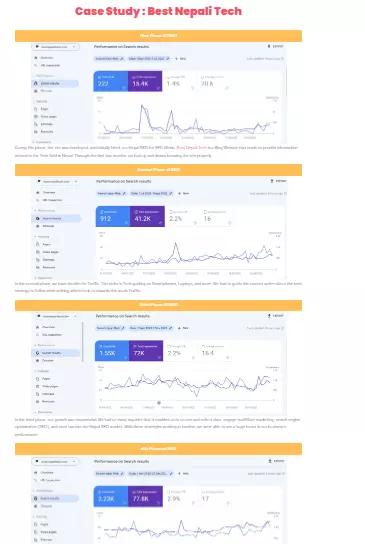
Any company that provides a service to customers can create case studies that showcase its expertise and demonstrate the effectiveness of its services.
4. Product / Service Writings
Writing the products or services’ key specifications and product description pages is also one type of content needed for seo. Like blogs, these content writings have (Commercial/transactional) keyword intent, and writers must write them accordingly. While the template also plays a significant role in optimizing these types of pages.
5. Company Information
The company information also plays a role in ranking other website pages. The company information section will contain the about us page, documents page, contact us page, our team page, why work with We page, etc., and these page’s content will give a trustworthy vote to the search engine. It helps search engines to know the business is legit and focuses on a specific niche, helping other pages to rank on relevant pages.
The Importance of Content in SEO
We have discussed many points above; all of them are directly and indirectly linked to the importance of content SEO. With the help of content, the business can create the following things that help rank websites organically.
1. Brand
With the help of engaging content, the business can create a brand on the search engine, and even more, brands are built with the help of content on other social media and their optimization. Content is essential for SEO as it helps in building the brand.
While building the brand need a clear objective to reflect through content to audiences, creating high-quality, relevant content helps make a brand. Building a Brand helps search engines know more about their relevant niche and helps them grow.
2. User Engagement
Creating high-quality content will attract users’ time and engagement to the webpage. The more engaged and satisfied users, the higher the probability of ranking the web page. To make better engagement, content plays a huge role and helps in SEO for user engagement.
3. Keyword Optimization
The keyword can be optimized, and more portion of keyword optimization goes towards the content as they are needed for ranking on any topic, niche, etc. So content also helps optimize the website keyword properly, which is important for SEO.
How To Optimize The Content For Search Engines?
After writing the content, we should follow on page seo checklist to optimize the content for better ranking on search engines. Here we will talk about some basic page seo checklists, while the docs linked have complete on-page seo checklists.
- Meta tags
- URL
- Headings
- Schema
1. Meta Tags
Meta Tags are those Titles and descriptions shown on the search engine result page (SERP). They should be optimized properly, including our primary keywords, making them click-worthy, with limited Characters only.

1.1 Meta Title
The title shown on the SERP page is known as Meta Title. We can optimize the meta title with simple steps:
- Focused Keyword Place in Title
- Less than 65 Characters (exceeding won’t show more words on SERP)
- Put Click Worthy Sentence
1.2 Meta Description
Meta description also has the same rules, but to optimize them, we should also put other keyword clusters to make it relevant and attractive.
- Placing Focus Keywords & Keyword Cluster
- Less than 160 characters
- Click worthy and attractive
2. URL
The portion of the URL can be optimized by the following:
- Short and Sweet
- Focused Keyword Placed
- Meaningful Slug word only
- Heading
Everyone loves the structure heading, content, and even google, yahoo, Bing, and Bravo browsers. There are some basics of Heading tags.
- The page Should Only Contain one H1 Heading
- Making Structure SubHeadings
- Placing keyword clusters and Focused Keywords on the Heading
3. Schema Markup
Schema is the codes that are understood by the majority of the search engines which follow the guidance of schema.org. Some examples of schema markup are Frequently Asked Questions, Products Rating, Reviews, Job Schema, etc.
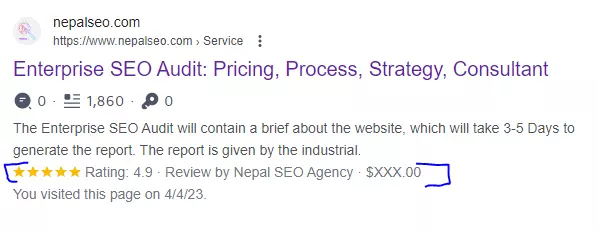
Additionally, this schema type helps search engines know the website and even more engaging portions on search engine result pages.

